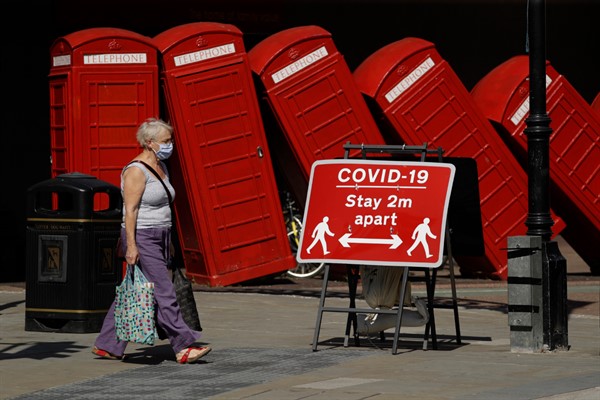There were grim anniversaries last week, a year since the first coronavirus lockdown in the United Kingdom. This time last year, I had developed a strange, breathless cough that didn’t go away for eight weeks. But I was one of the lucky ones. More than 127,000 people in the U.K. didn’t make it. The U.K. may have been overtaken more recently by other European countries, like the Czech Republic and Hungary, for the unhappy distinction of having the highest COVID-19 death rate per capita in the world, but it’s still close to the top spot, as is the United States.
And Easter Sunday will mark the first anniversary of my uncle’s admission to the Queen Elizabeth Hospital in Birmingham, just around the corner from the religious community where he lived in Harborne. He never returned home. He lived a life of service to others, but died alone two weeks later, apart from the nurses who paused amid the chaos of the COVID ward, and gathered around his bedside as he faded. Five hundred of us attended his funeral—on Zoom.
As the U.K. prepares to take its first steps out of a five-month lockdown this week, Britons are proud of the country’s vaccination program. With nearly half of the adult population vaccinated, many hope that life could return to something like normal by the summer. Public health experts, however, warn that even with a vaccinated population, testing, tracking and contact tracing will become “more important than ever.”

